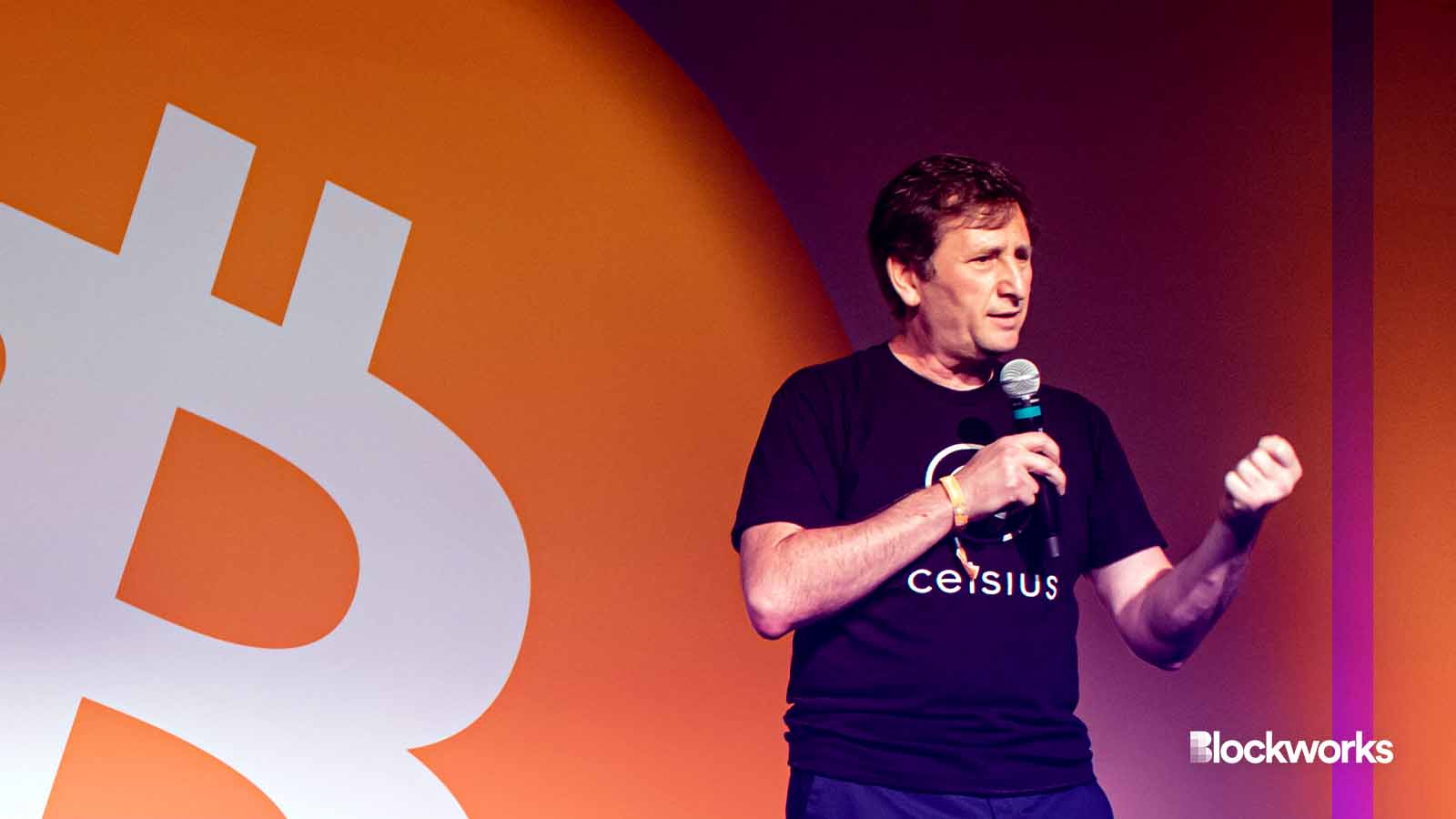Celsius Network payment plan approved by New York judge, now it’s up to the SEC
Celsius’ unconventional plan of shifting into a publicly-traded bitcoin mining shop is one step closer to becoming a reality

Former Celsius CEO Alex Mashinsky | Kevin McGovern/Shutterstock modified by Blockworks
A federal judge in New York gave Celsius Network the green light to transition into a bitcoin mining operation owned by the failed crypto lender’s creditors.
Former Celsius customers will receive a combination of cryptocurrency assets and stock in the new venture, which will be publicly listed if all goes according to plan. The US Securities and Exchange Commision will also have to sign off on the listing, and will have the opportunity to “challenge” any crypto asset transactions they deem to involve securities.
US bankruptcy judge Martin Glenn has asked the securities regulator to move swiftly in making its decision.
The approval marks what could be the end of a lengthy process for Celsius and their creditors. In August, the debtor sent its plan to creditors, some of which opposed, but the official committee representing junior creditors approved the filing.
In Glenn’s opinion, filed alongside his approval of the plan, the judge noted that “one of the most contentious issues” throughout the Chapter 11 case has been disputes over how to value the CEL token, Celsius’ native coin. Some creditors argued CEL holders should be reimbursed a minimum of $0.81, while others said compensation of CEL should not be included in the plan at all.
Parties eventually came to a settlement agreement, which stipulated that CEL token deposit claims be valued at $0.25 per token. Account holders are still free to file and continue claims against third parties for alleged market manipulation regarding CEL.
The US Department of Justice charged former Celsius CEO Alexander Mashinsky with fraud and manipulation relating to his role at the company in July 2023, a year after the company filed for bankruptcy.
Mashinsky has pleaded not guilty to all counts and his jury trial is scheduled for September 2024 in the Southern District of New York, the same courthouse where a jury found FTX founder Sam Bankman-Fried guilty on seven federal counts earlier this month.
“[Mashinsky] told investors that Celsius would generate sustainably high returns by making low-risk collateralized loans to first-tier institutions and cryptocurrency exchanges as well as overcollateralized loans to retail borrowers,” New York Attorney General Letitia James said when the charges were filed.
Get the news in your inbox. Explore Blockworks newsletters:
- The Breakdown: Decoding crypto and the markets. Daily.
- 0xResearch: Alpha in your inbox. Think like an analyst.






